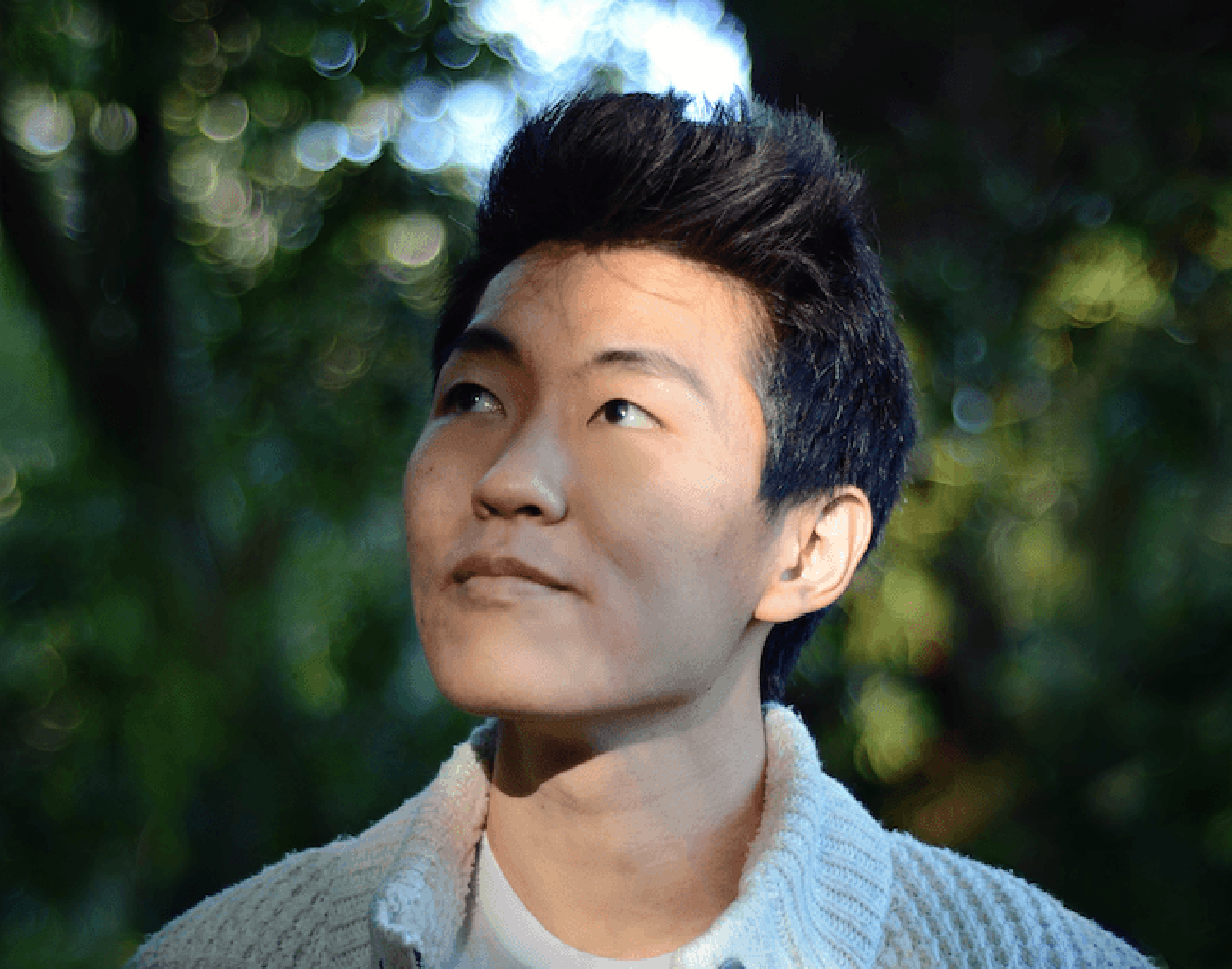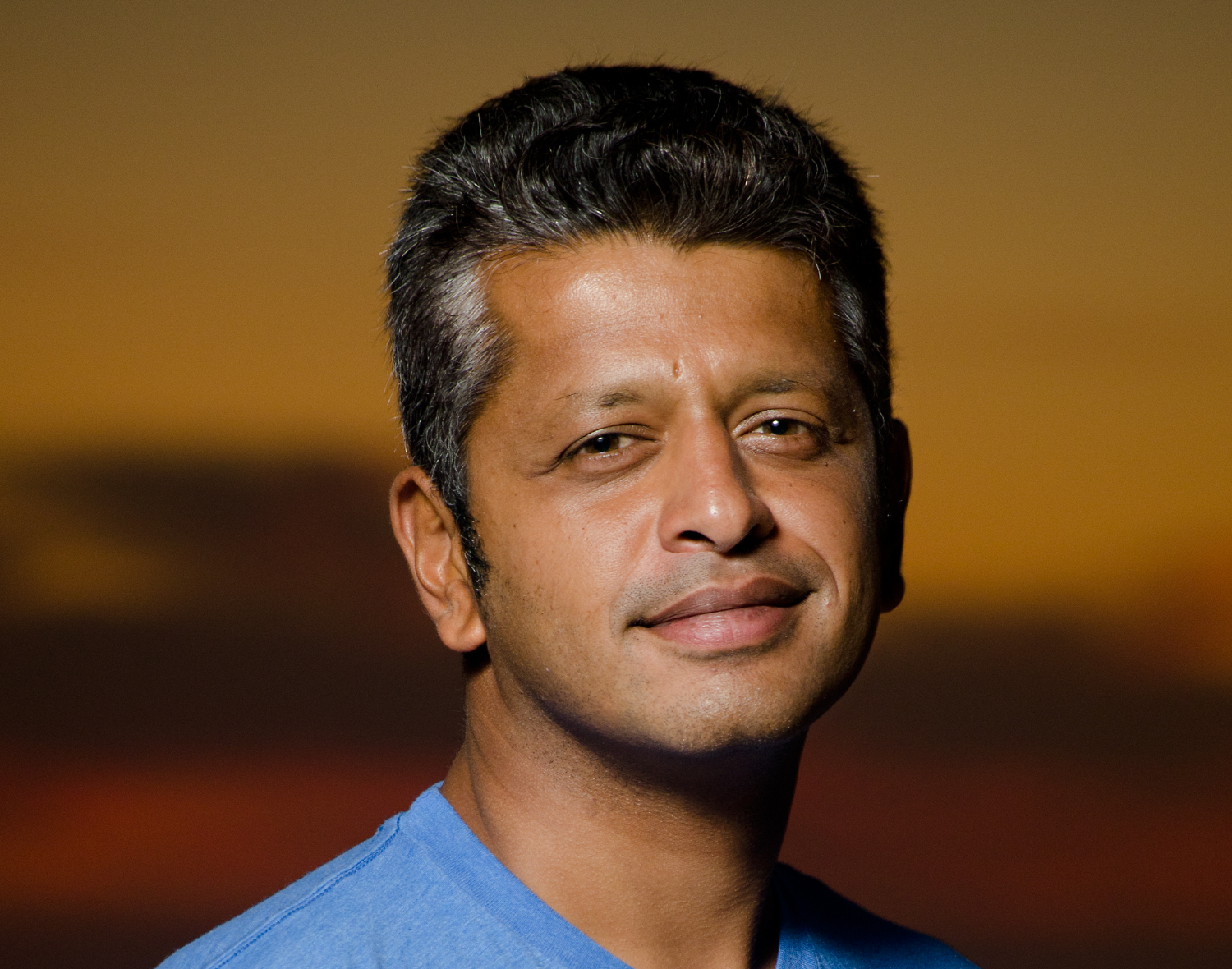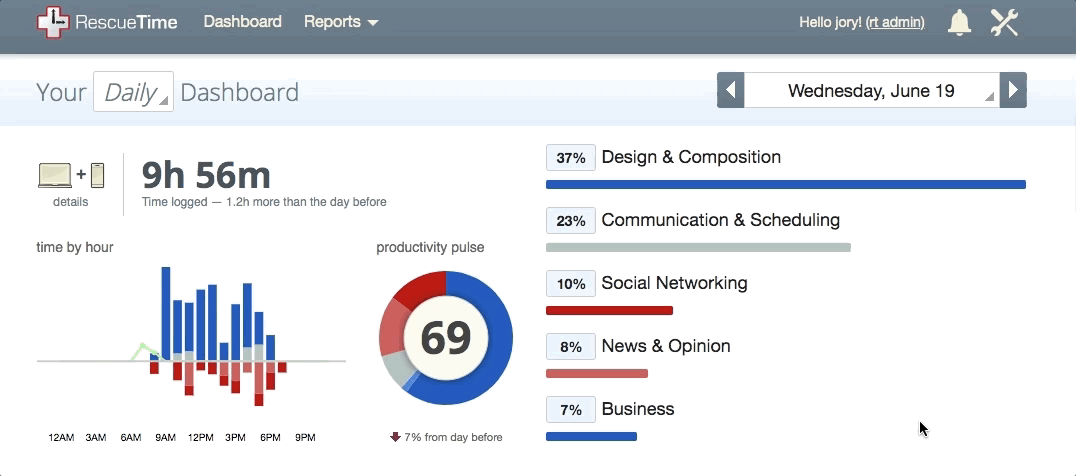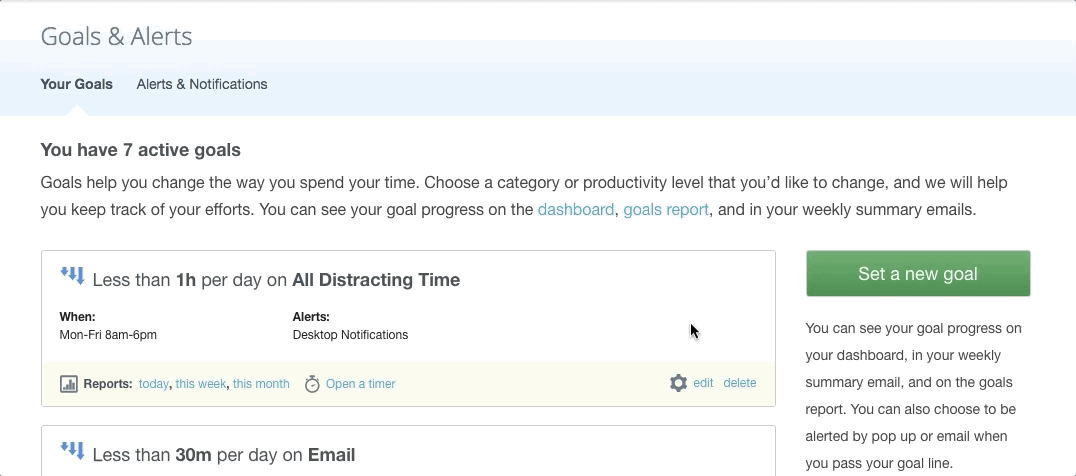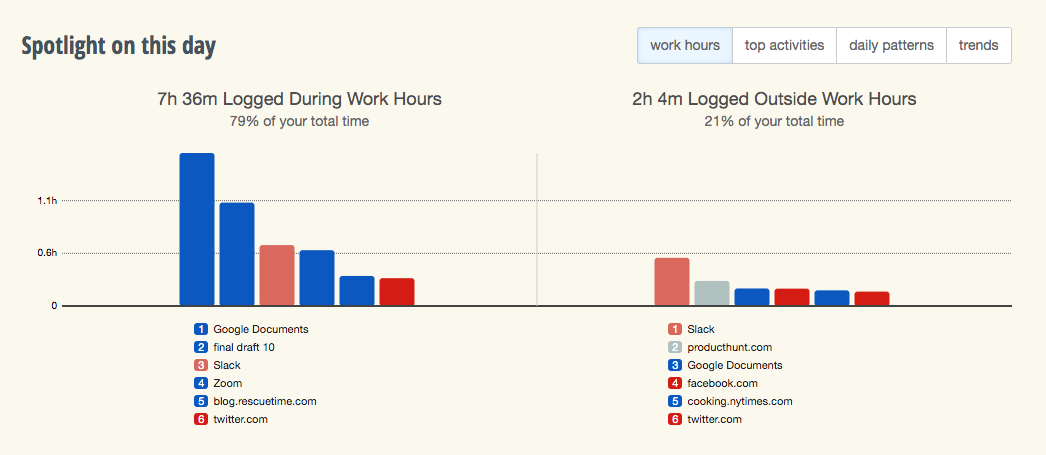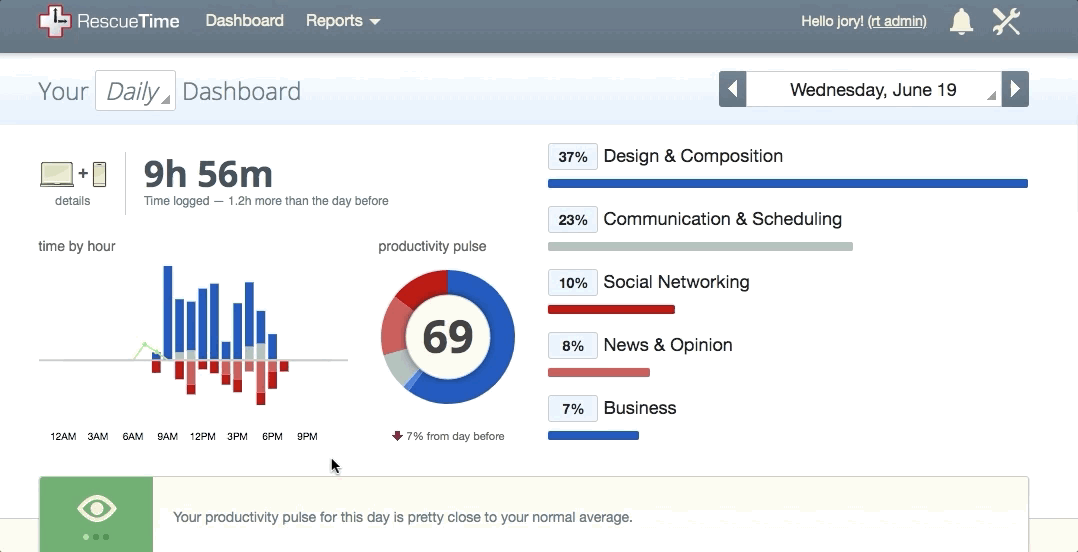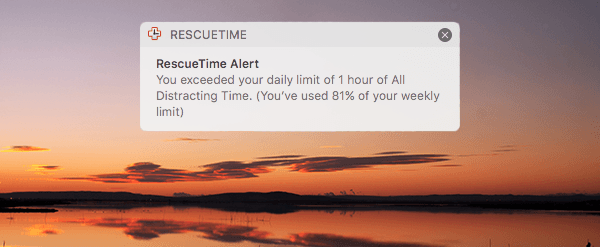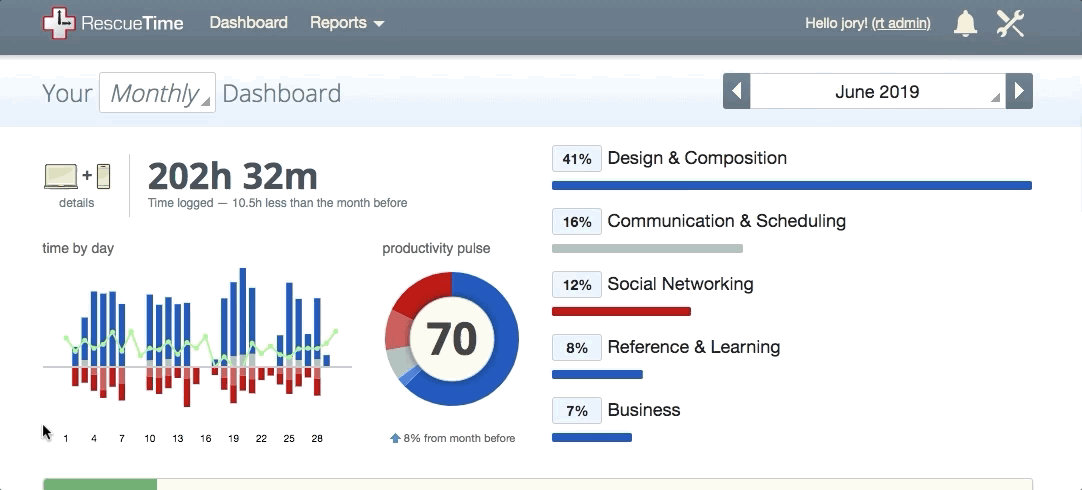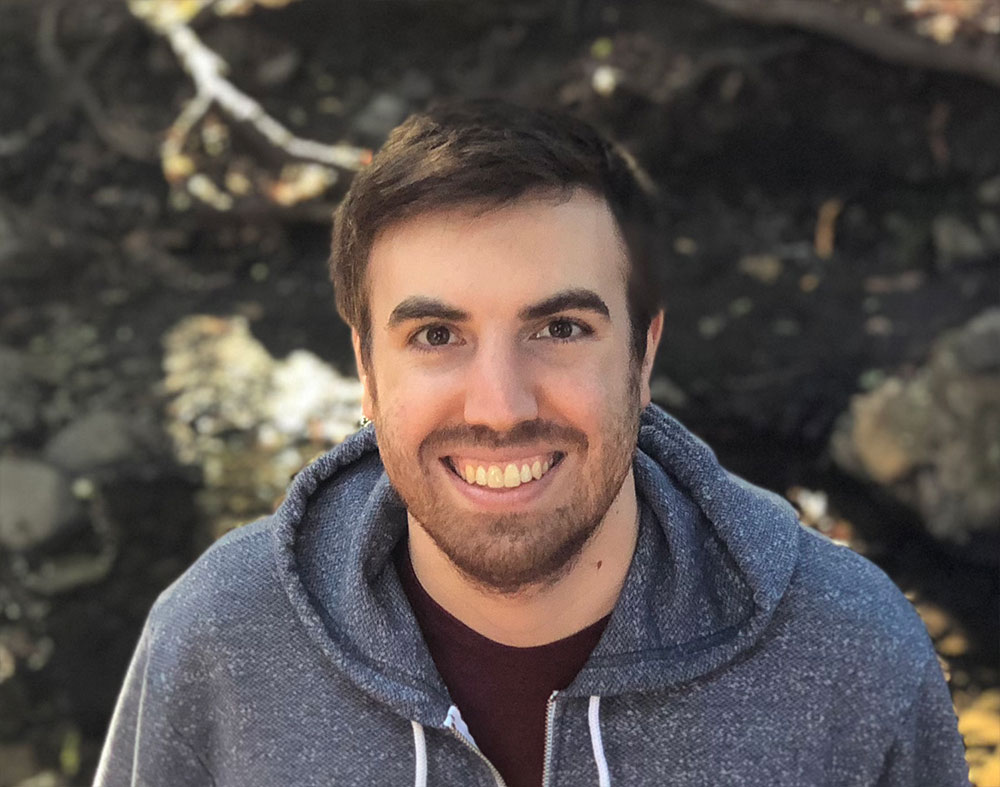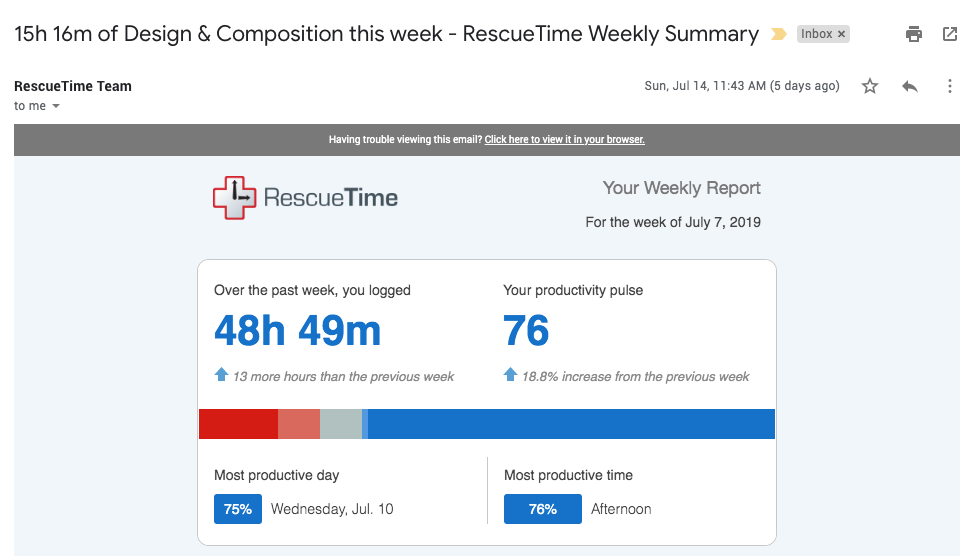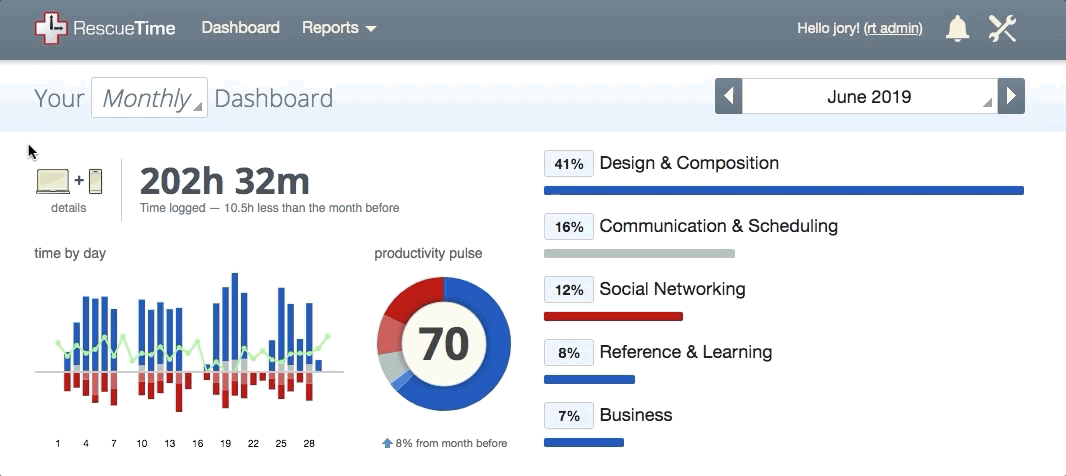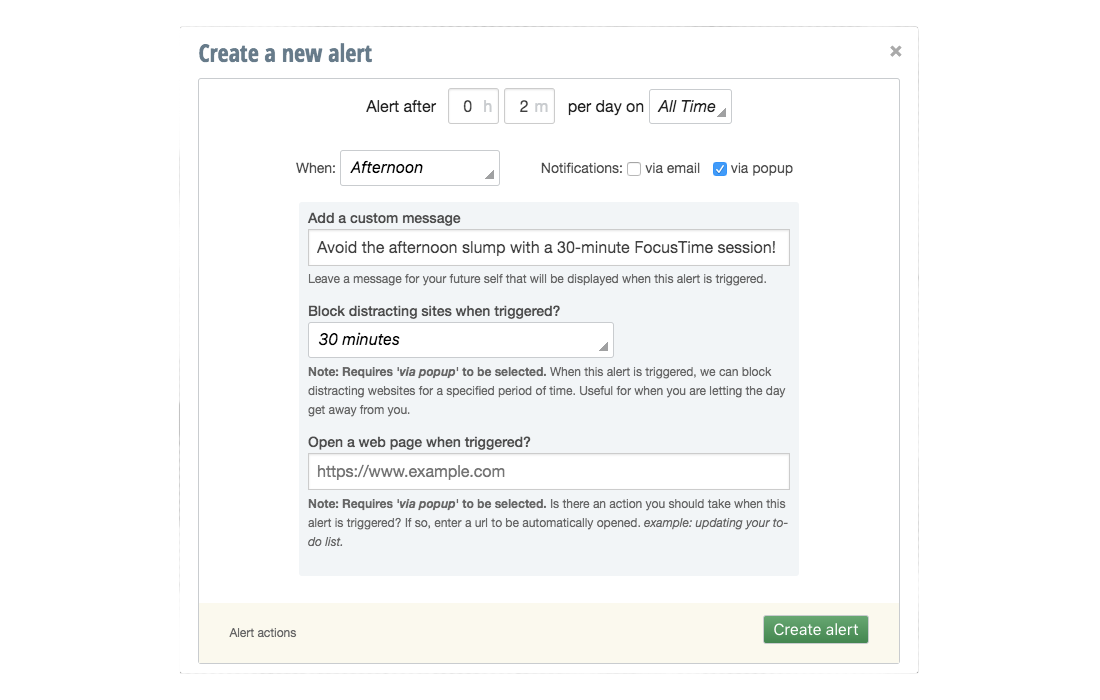How Jonathan used RescueTime to optimize his time
After using RescueTime for a few days, Jonathan started to see real data about his productive time. And it wasn’t great.
By looking at his Productivity by Time of Day, he quickly realized that despite working long hours (often late into the night) and feeling productive, there was a clear diminishing return the more he worked.
Specifically, his productivity levels were dipping in the evenings when he was more likely to get distracted by social media and entertainment.
“Without knowing exactly how much and when you’re working there’s no way to optimize your time. You can’t hit any sort of consistency because you’re always guessing.”
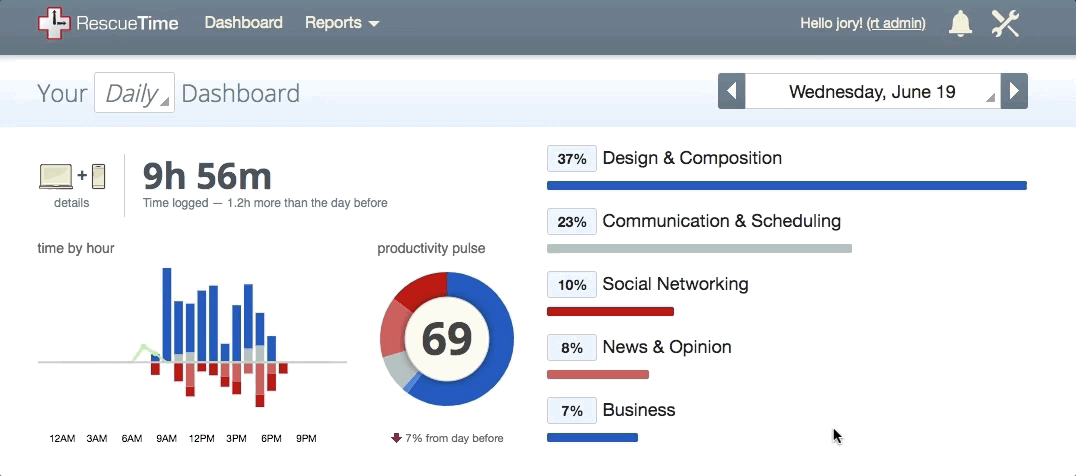
With an accurate understanding of how he spends his time, Jonathan was able to optimize his daily schedule an do his most important work when he’s more productive.
In practical terms, this meant blocking out a 2-hour window first-thing in the morning for focused work and then cutting himself off earlier when he knew his productivity was going to slip. At first, the thought of working less and still hitting his goals seemed impossible
But he quickly found that even though he had less time to work, he was getting more done.
“While I had less absolute time, I had more more in time in terms of focused work.”
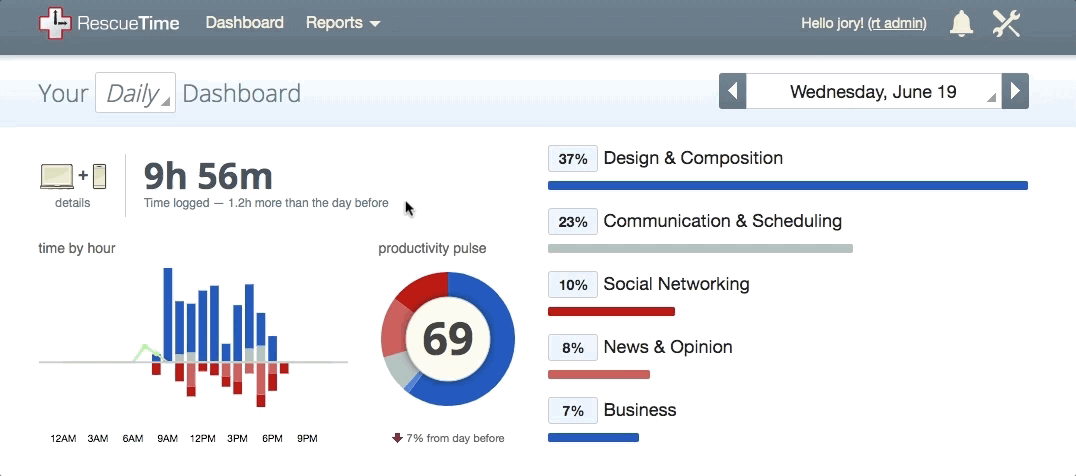
With his schedule optimized, Jonathan decided it was time to optimize other parts of his workday for focus and motivation. By checking his Productivity Pulse, he already knew that his phone and social media (especially sites like Hacker News) were his biggest distraction.
“When I came up against a problem in my work, I’d start scrolling and browsing. My phone became my default for when I was feeling uncomfortable.”
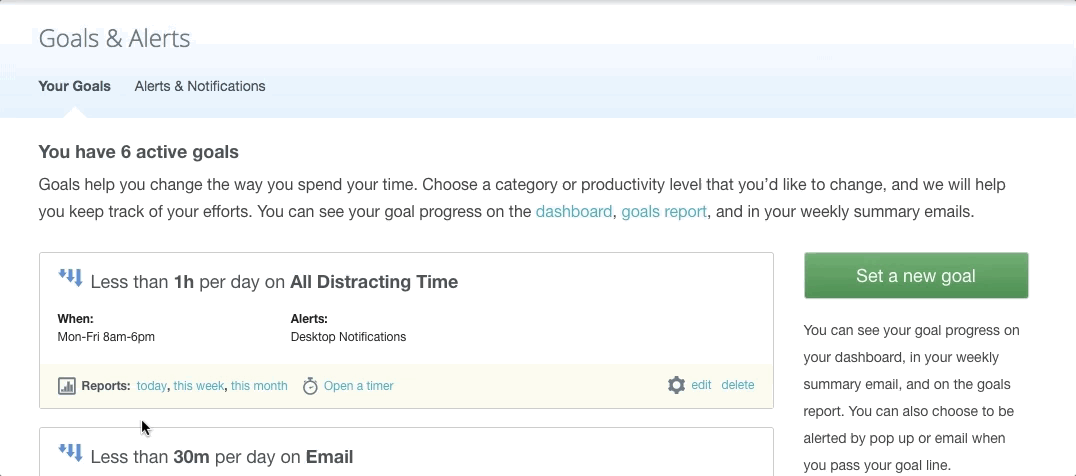
With RescueTime, Jonathan was able to rebuild his schedule around focus, claw back from burnout, and reduce his working hours while getting more done. But he didn’t use RescueTime just for this initial optimization, but also to help maintain his productivity day after day, and week after week.
“In this age of distraction, being able to focus for a long period of time on a single task is a competitive advantage few people have. RescueTime helps me identify not just how I spend my time but also when I’m most likely to do my best work each day.”


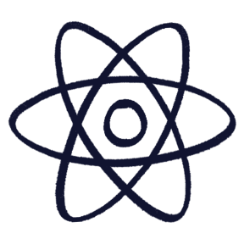 Knowledge workers
Knowledge workers
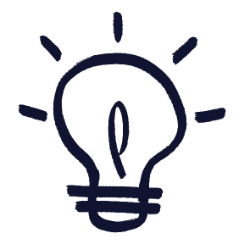 Entrepreneurs
Entrepreneurs
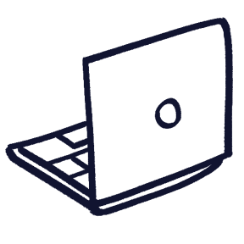 Freelancers
Freelancers
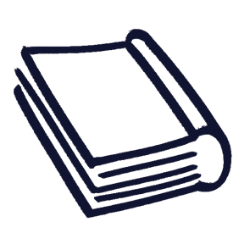 Students & Teachers
Students & Teachers
